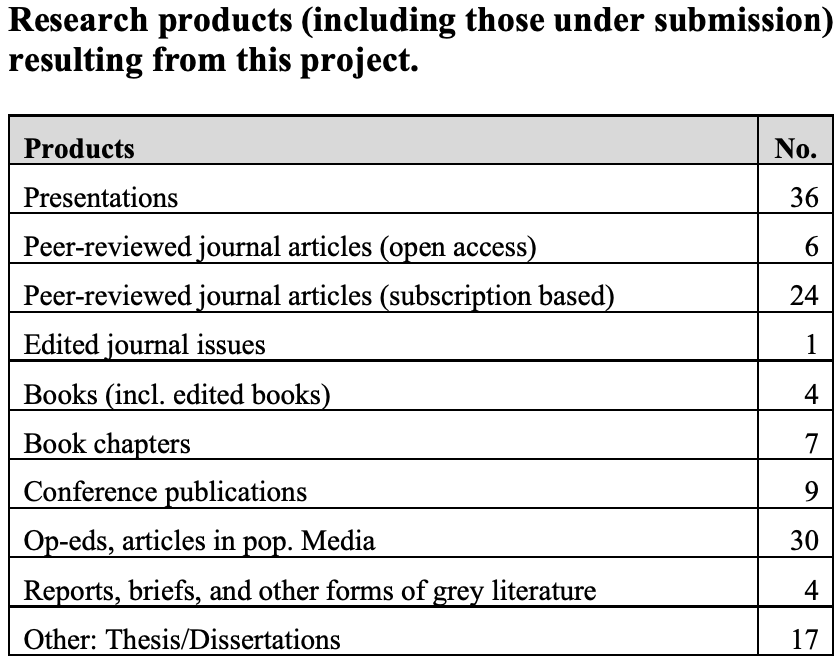The project began at the same time as working conditions in the industrial fisheries in Thailand exploded into a global media scandal, which was framed as an important case of modern slavery. Although this scandal did not draw the same media attention in Canada, over the past year it has been cited as justification for a private members bill known as the Modern Slavery Act, which was based on a law passed in the UK in 2015. In light of this, the PI and several co-investigators focused their research on working conditions in industrial fisheries in Thailand and other mainland Southeast Asia countries, with a focus on how regulation of working conditions were related to changes in fisheries management. The data we produced in Thailand enabled us to contribute to the assessments of Thailand’s policy reforms in terms on the improvement of working conditions which were generally positive although many problems remain.
We have also written extensively on the benefits and limitations of slavery and human trafficking framings. We argue that while these framings have brought attention, resources, and action; they provide a poor guide for policy reforms as the question of labour market freedoms (which is at the core the slavery and human trafficking framing) covers a limited part of working conditions more broadly, while the rescue that follows these ways of framing unacceptable working conditions is often not appropriate and fails to engage what workers want. Finally, we completed an initial phase of research that seeks to explain poor and unsafe working conditions in fisheries. We found that poor working conditions are more likely when workers are migrants—with international migrants more vulnerable than workers who move within the country; when boats are at sea for longer periods of time increasing isolation; and when seafood is exported to wealthy countries and purchased by branded companies.
The turn to market-based approaches to forest conservation (including REDD+) has drawn considerable critical attention, with many scholars arguing that these approaches will further marginalize resident forest users, especially forest-resident ethnic minorities. Our case studies on this question show that this does happen in some cases, but in other cases, residents can use these policy instruments to achieve their goals, which may include but are not limited to forest conservation. For example, in Thailand, upland communities have used market-based conservation projects to solidify their rights to manage community forests in the face of competing claims. Communities are more able to do so in less authoritarian states and where community rights are recognized, for example in Thailand, where they continue to be guaranteed in recent constitutions. In Laos, by contrast, our research found that resident communities and their use of forest products were marginalized by an eco-tourism project that paid villages for eco-system services.
The Project Team & Their Outputs
A total of 30 individuals were part of the project team. Thirteen were Canadian citizens or Permanent Residents and 17 were foreign researchers. Of these, there were 18 MA/MSc students, four PhD students, and eight from other categories (e.g. technicians, professional research associates). Together we produced 138 research products.

View the publications coming out of the NDEG project here: http://ndeg.apps01.yorku.ca/project-publications/
